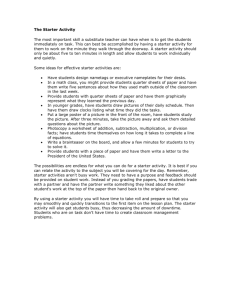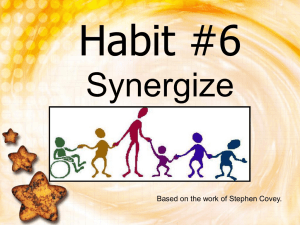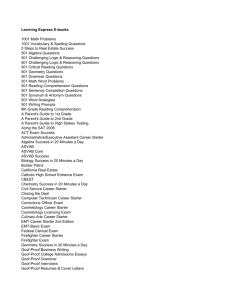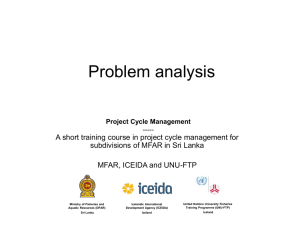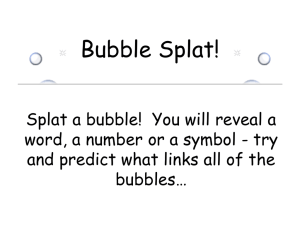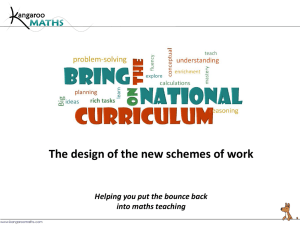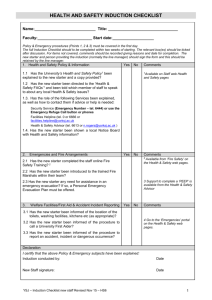The Mental and Oral Starter - Lancashire Grid for Learning
advertisement
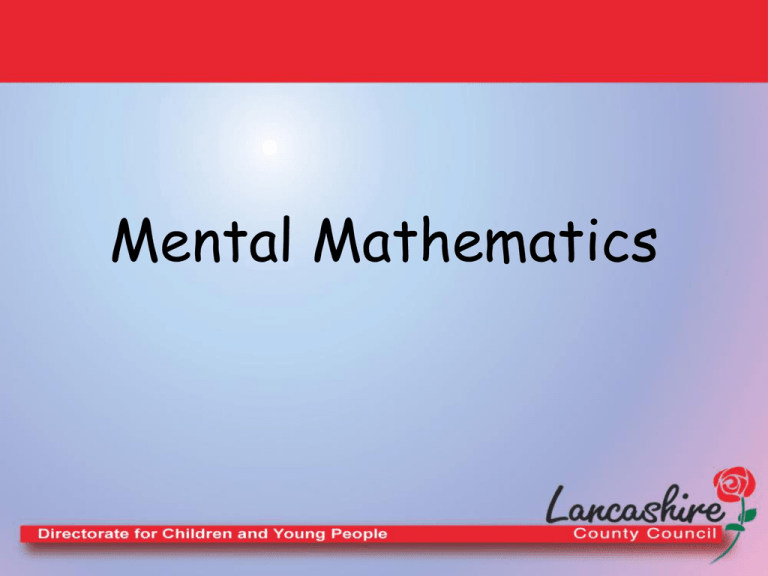
Mental Mathematics Aims • To consider the purpose of the starter in the daily maths lesson • To consider possible content of the starter • To look at some starter activities Background and context • • Concern that children’s mental calculation skills and recall of facts were generally weak. Framework referred to the first part of the lesson as: – • Oral work and mental calculation (about 5 to 10 minutes) (Whole-class work to rehearse, sharpen and develop mental and oral skills) • • • • • Focus was on strengthening children’s oral and mental skills through regular daily practice. 1999 Framework lists a number of activities that might form part of this oral work and mental work. Oral and mental ‘starter’ and was often judged by Ofsted to be the strongest part of mathematics lessons. Successful starters were short, focused activities that prepared the children for the main teaching activity by getting them to think mathematically. These ‘starters’ were objective-led activities that supported children’s learning and moved it on. Current situation • Range of purposes and related activities has increased. • Focus on oral and mental calculation has widened and become a vehicle for teaching a range of mathematics. • Too often, the ‘starter’ has become an activity extended beyond the recommended 5 to 10 minutes. • In these situations, there can be more teacher talk than there is oral and mental work • Some evidence that the focus on oral and mental calculation has been lost and needs to be reinvigorated. • The ‘starter’ to a lesson remains an effective way of engaging children at the start of a lesson through a brisk, well-focused activity that helps to secure children’s knowledge and sharpens their skills. • Some evidence that mental work is only done in the starter • Some evidence that teachers see mental mathematics as giving children a test Starter • Activities may continue to be rehearsal activities. • Rehearsal and practice are designed to strengthen knowledge and skills. • Important that children have sufficient opportunity to consolidate all the mathematics teaching they have received. • Mental work fulfils many other purposes. The six Rs of oral and mental work • • • • • • Rehearse Recall Refresh Refine Read Reason Rehearse • Practise and consolidate existing skills. (usually mental calculation skills, including using and applying) • Vocabulary and language of number • Properties of shapes or describing and reasoning. Recall • To secure knowledge of number facts, (developing speed and accuracy) • Recall quickly names and properties of shapes • Recall quickly units of measure or types of charts or graphs to represent data. Refresh • To draw on and revisit previous learning • To assess, review and strengthen children’s previously acquired knowledge and skills • Return to aspects of mathematics with which the children have had difficulty • Draw out key points from learning. Refine • To sharpen methods and procedures • Explain strategies and solutions • Extend ideas; develop and deepen the children’s knowledge • Reinforce their understanding of key concepts • Build on earlier learning so that strategies and techniques become more efficient and precise Read • To use mathematical vocabulary • To interpret images, diagrams and symbols correctly • To read number sentences and provide equivalents • To describe and explain diagrams and features involving scales, tables or graphs • To identify shapes from a list of their properties • To read and interpret word problems and puzzles • To create their own problems and lines of enquiry. Reason • To use and apply acquired knowledge, skills and understanding • To make informed choices and decisions • To predict and hypothesise • To use deductive reasoning to eliminate or conclude • To provide examples that satisfy a condition always, sometimes or never and say why. Activities for Mental Work? Useful Strategies for developing mental skills Ensure children have understood a question by: -repeating the question more slowly -rephrasing the question -presenting the question visually -asking the children to put the question into their own words -giving an example of a possible answer -give them thinking time Help all children to answer by asking them to: -say an answer in unison -show an answer with their fingers -point to a number on a grid, target board or line -asking questions with a range of possible answers -waiting before expecting an answer -getting the children to tell their partner the answer -giving children digit cards to hold up -writing answers on personal whiteboards -taking an answer but asking the children to discuss whether it’s correct Key messages • • • • Cover all areas of maths Think of the 6Rs Involve all children 2 or 3 sessions in a week should be to do with your target area in maths • Counting and rapid recall should occur every day
